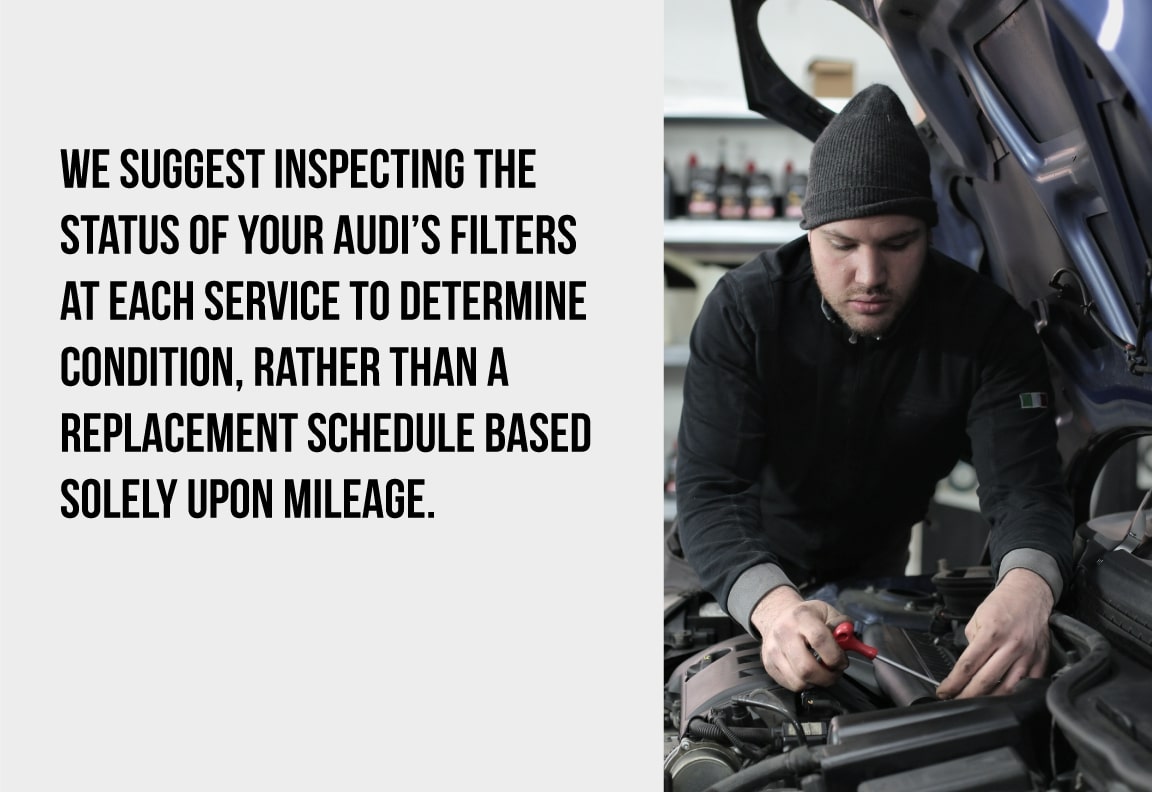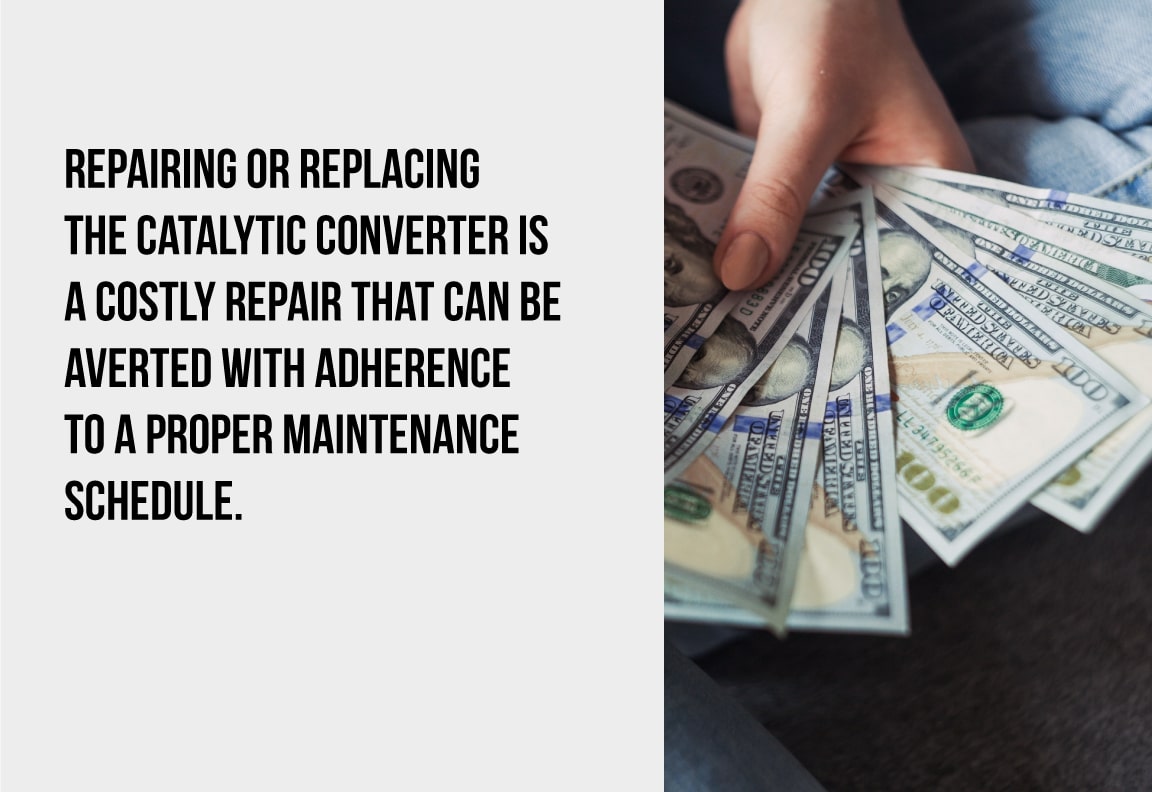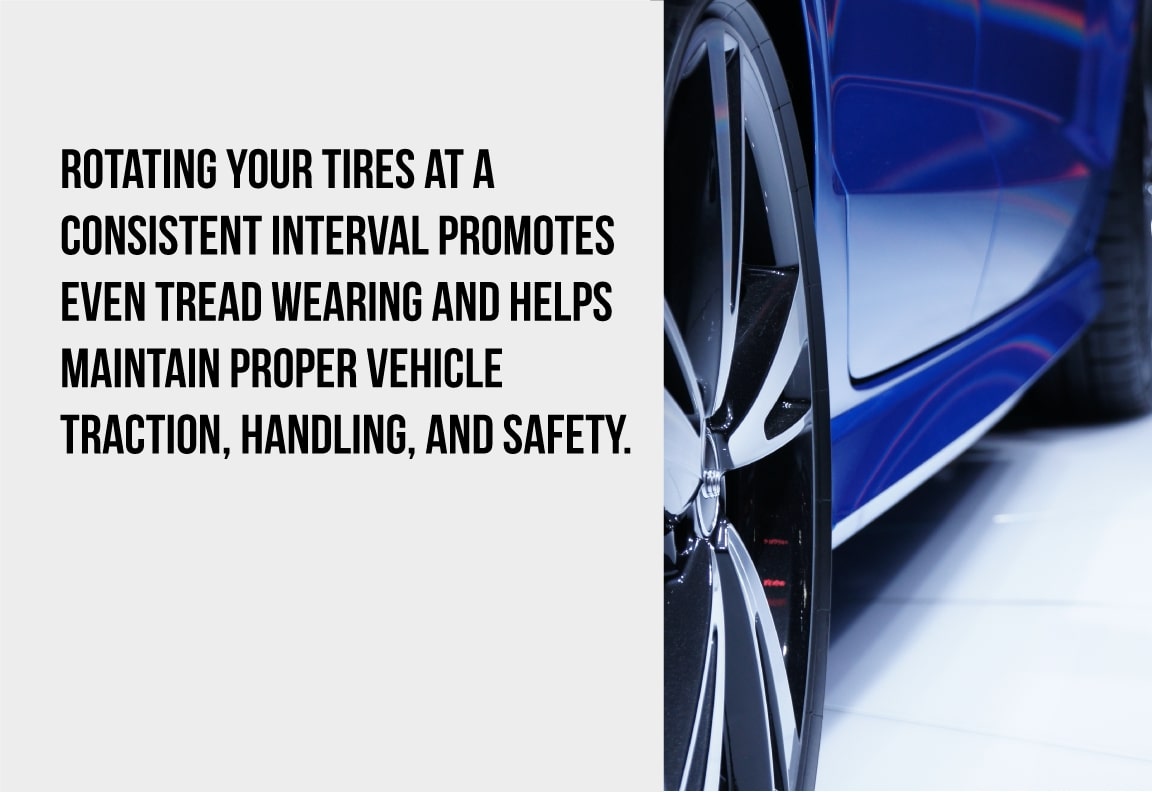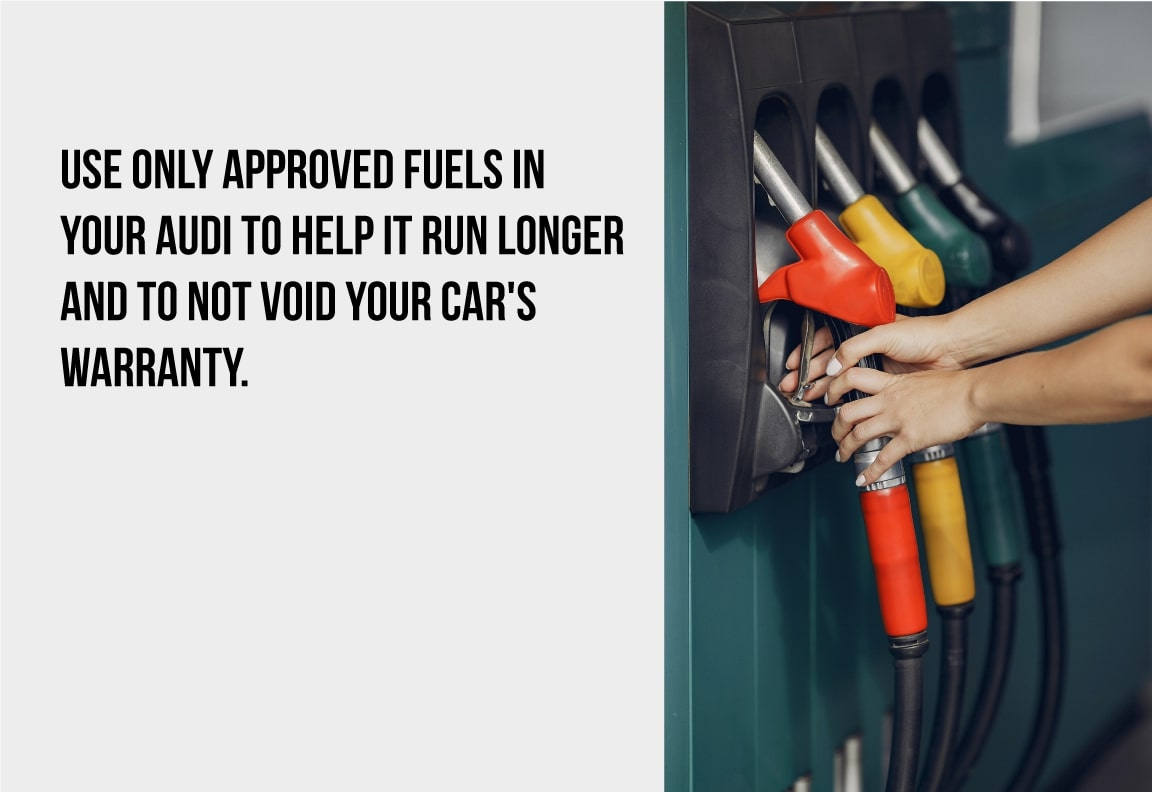
If you drive an Audi, then you drive one of the finest examples of German engineering available.
Of course, since you drive an Audi, you already know this!
In fact, you likely chose an Audi because of this.
You’re reminded every time you look at your vehicle, and certainly every time you get behind the wheel. Audis and their drivers are unique - when you drive the best, you want only the best for it.
So how do you take care of your Audi? How do you keep it a finely tuned machine and one of the smoothest rides on the road?
The following is a guide to Audi service and maintenance from the team at Autohaus Social . Our goal is to help extend your Audi’s lifespan and health while minimizing the headaches that come with vehicle maintenance and repair for all vehicular brands.

Enjoy learning how to care for your Audi properly. And if you are in the Atlanta area, check out the Audi services we offer in Atlanta !
Maintaining your Audi is a lot like maintaining your bodily health.
You have to treat your body right with exercise and proper nutrition to live a long, full life, right?
Well, your Audi needs a healthy lifestyle as well. Your vehicle has many different systems required to perform properly individually and also symbiotically with the other car systems.
Each of these systems is made up of multiple parts and fluids, and we know that all parts eventually fail, and all fluids break down. Thus, it is essential to monitor the health of these individual systems, parts, and fluids to keep your Audi running at its peak.
By maintaining the multitude of parts and exchanging or “flushing” the fluids along with predetermined mileage intervals, you can maximize your Audi’s health and minimize necessary repairs.

Every engine designed by the VW/Audi Group is slightly different, but the baseline schedule for each is similar.
The following are examples of the suggested schedules developed by Audi for the proper maintenance of their exceptional products. These are also the schedules and intervals we follow at Autohaus Social.
Keep in mind that each engine and vehicle engineered by Audi may differ slightly - depending on your model, your Audi’s maintenance schedule may differ slightly.
Always refer to your owner’s manual or call a trusted automotive facility for guidance specific to your vehicle!
Oil changes in your Audi should be performed every 5000 or 7500 miles, depending on the particular vehicle/engine, despite Audi’s claim of 10,000-mile intervals.
Why more often than Audi’s claim?
In recent years, most manufacturers have increased recommended oil change intervals to reflect improved motor oil quality and technology as well as decreased cost of ownership figures.
However, for the vehicle’s long-term care, oil changes should be performed more frequently than these manufacturer’s suggested mileage intervals.
Think of your car as an athlete - you wouldn’t recommend the most finely-tuned human beings do some light stretching and take a few walks each week to maintain their prowess; they need regular exercise.
Your Audi is the same - the more you expect from it, the better you should treat it!
Autohaus Social suggests oil changes ever 7500 miles for Audis under 70,000 total miles, and every 5000 miles for vehicles over 70,000 miles.
For Audi performance models, we suggest every 5000 miles regardless of accumulated miles due to the rigorous demands a performance engine endures.

Audi recommends air and cabin filters every 20,000 miles. However, variables such as geography, season, climate, and your driving habits may require you to change it more or less often.
We suggest inspecting the status of your Audi’s filters at each service to determine condition, rather than a replacement schedule based solely upon mileage.
The reason for clean filters is quite simple: Air needs to pass through particular systems in order to keep those systems functioning. If the air is restricted due to debris or residue, the system suffocates, resulting in other components to suffer the consequence.

Audi fuel filter replacement intervals vary based on the particular engine and whether a vehicle is a gas system or diesel.
Diesel fuel filters for Audis usually are replaced at 40,000-mile intervals, and gas models at less frequent intervals.
What is the purpose of fuel filters?
Fuel must flow at a predetermined rate. To do so, the path must be clear.
A fuel filter's purpose is to remove debris within the fuel inside the tank. These small particles could damage the injectors, high-pressure pumps, or other components. The resistance caused in the system from an old or dirty filter can cause the high and low-pressure fuel pumps to wear out sooner than designed.
Your Audi’s brake fluid should be exchanged and flushed every 30,000 miles or every three years, whichever comes first.
This may need to be done more frequently for performance vehicles or track cars.
Brake fluid, like any synthetic fluid, eventually breaks down in its chemical makeup due to heat, pressure, and time. When this happens, the pedal pressure and braking power are diminished.
Coolant, or antifreeze, should be replaced or flushed in your Audi every 40,000 miles or whenever a coolant system part is replaced.
These coolant system parts include the radiator, thermostat, hoses, heater core, etc.
Small particles of debris form over time within the coolant system, and these can clog or restrict the flow of coolant, resulting in potentially extensive damage to the system.
It is also advised to flush the system to clean it out and protect the coolant parts.
Audi spark plug replacement schedules are different for each engine, but the schedule should be adhered to diligently.
Replacing spark plugs consistently, as recommended, is crucial in minimizing the damage to other associated systems that can occur once plugs are worn and causing “misfires.”
What are misfires in a car’s engine?
Misfires, by definition, are the failure of one or more plugs or coil packs to ignite or “fire” properly. The catalytic converter eventually becomes damaged due to misfires.
Repairing or replacing the catalytic converter is a costly repair that can be averted with adherence to a proper maintenance schedule.

An Audi’s timing belt replacement is one of the most important services based on specific mileage intervals.
Failure to adhere to the recommended replacement interval causes significant engine damage if the belt breaks.
Thankfully, timing belt service isn’t needed too frequently - it is recommended every 80,000 - 90,000 miles depending on your particular engine.
Timing chains are less problematic than belts in terms of a critical failure because you’ll typically be given a warning. A trouble code usually presents itself, as well as physical symptoms, like clicking noises emanating from the timing cover or the Audi running rough.
These symptoms indicate the chain and associated parts are worn and need to be replaced immediately.
The transmission service frequency in Audis varies based on which type of transmission is in the Audi.
For this reason, check your owner’s manual or contact a trusted Audi service facility for the correct service interval. Failure to adhere to proper transmission service schedules and fluids can result in very costly repairs.
To extend the life of your vehicle’s tires, Autohaus Social suggests rotating the tires at the following intervals:
-Standard Audis: Every other oil change service
-Crossovers and SUVs: Every service
Rotating your tires at a consistent interval promotes even tread wearing and helps maintain proper vehicle traction, handling, and safety.

Because manufacturers don’t typically suggest cleaning your sunroof drains as necessary maintenance, dealers rarely recommend scheduled cleaning of drains.
However, our team does not agree with this.
If you park outside, especially if there is a lot of tree canopy, the drains should be cleaned every spring before the spring rains. If the vehicle is garage-kept, every 2 or 3 years suffices.
Why is cleaning the sunroof drains so important?
Your sunroof was not designed to be completely water-proof. There are tracks within the frame allowing excess water to travel to the front (left and right) and rear (left and right) drains.
Failure to keep these drains clean results in water damage to the interior of the vehicle, and we are not just talking about water on the floorboards. You can have water in the electrical and mechanical systems inside Audi’s cab.
One hour, once a year, can save you thousands of dollars in repairs!
At one time, automotive fluids were fairly universal. But as vehicles and technology have developed, specialization has become necessary.
Today, if you see a fluid claiming to be universal, NEVER put it in your Audi!
All fluids are engineered by the manufacturer to meet the vehicle's specific needs and systems. For example, if you mix a Ford coolant (antifreeze) with an Audi coolant, you can cause severe damage to the engine’s cooling system.
Vehicle damage is not the full extent of the dangers associated with using the wrong fluids - if your vehicle recommends a 5w40 synthetic oil, but you use the wrong 5w40 oil, you also void your warranty and potentially damage the engine internals.
It is critical to use the correct fluids for their associated systems!
The following are ways to know if you are using the right fluids in your Audi.

Each manufacturer requires not only a particular weight oil for the engine but also a specific “add-pack” designation.
It is vital to use the correct weight oil for the engine to maintain the proper crankcase pressure (the pressure inside the engine when running).
Equally important for long term care is the Add Pack mentioned above. An Add Pack is the designated amount of additional chemicals in the oil that improves the oil’s performance.
Add Pack additives include corrosion inhibitors, detergent additives, anti-oxidation additives, friction modifiers, anti-foaming agents, and more. The use of these additives helps the engine perform better for longer.
The Add Pack designation is clearly marked on the oil container/bottle.
Also, you should not use “any old oil” if the vehicle is to be maintained properly and retain warranty coverage.
Check your owner’s manual or your local Audi service center to learn which oil is right for your car. For example, the 5W40 add pack designation for a 2004 Audi A4 2.0T engine is 502-00.
A common question we receive is the following: “What is the proper fuel to put into my Audi?”
Most vehicles have the minimum octane rating either on the gas cap or on a decal inside the fuel door. For Audis, or any European vehicle, even if the label or cap states a particular octane rating, it is advised to use a higher octane or premium fuel (91 or 93).
Why is using a higher octane fuel necessary in an Audi?
The higher the octane rating, the cleaner and more efficient the fuel burns.
It may cost slightly more at the pump, but it is well worth the added cost to maintain the vehicle in the long run!
Along with using a higher octane fuel, it is important to purchase good, clean fuel. A good rule of thumb is to buy fuel from a busier station because the longer fuel sits in the below-ground tanks, the more contaminants are likely to be present.
Also, purchase only “top tier” gasoline. If the station does not display a decal claiming top tier fuel, you may want to look elsewhere.
What about retail giants who have fuel pumps at their stores (Walmart, Costco, Kroger, etc..)?
Do your research before buying gas at these pumps as the source and quality of fuel often change from one delivery to the next.
If your Audi uses diesel, quality and source are also very important, and the above recommendations for quality should be followed strictly.